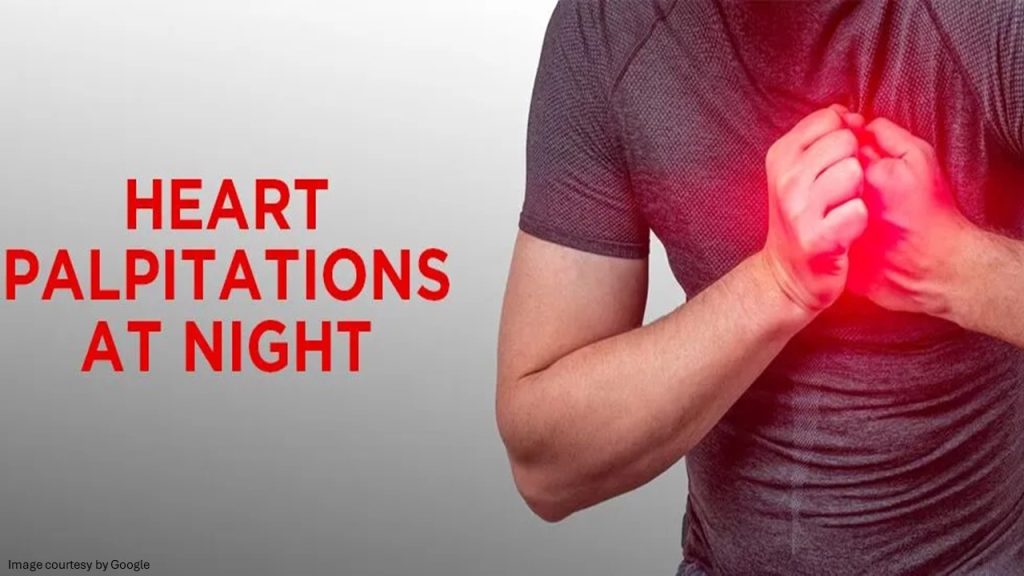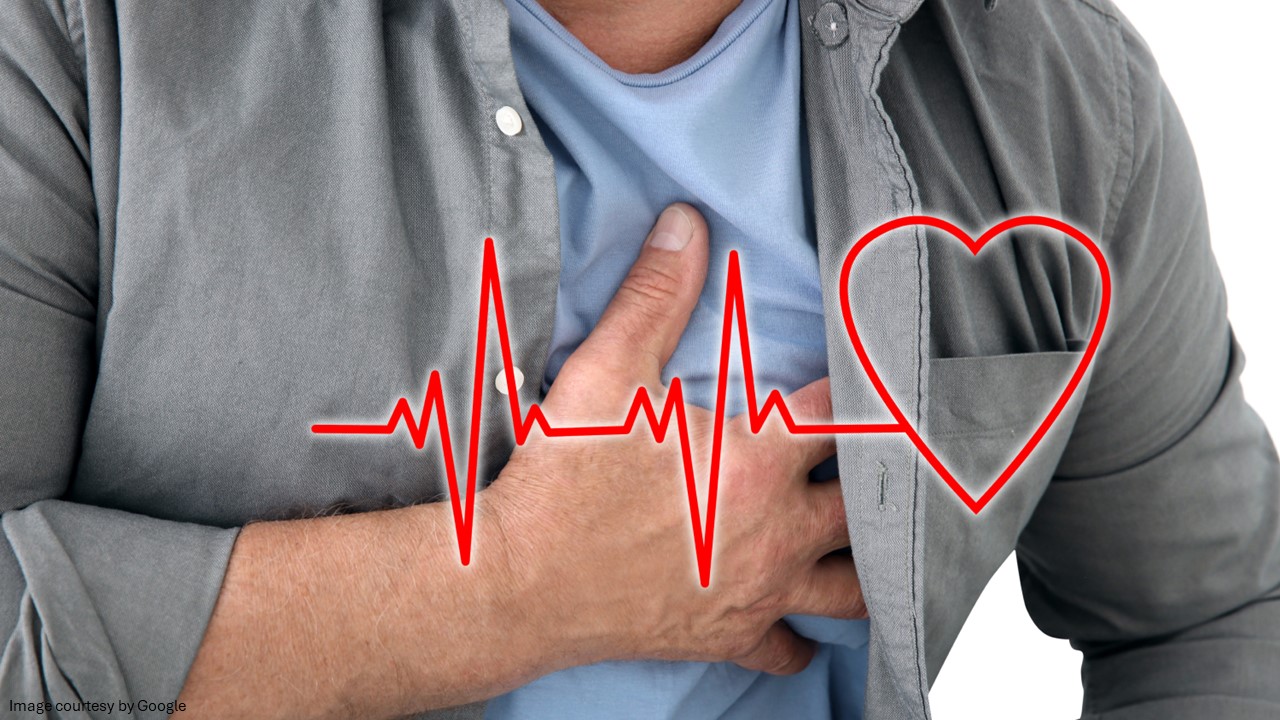Beating the heart too hard or too fast may sometimes result in heart palpitations. This condition isn’t serious or harmful but can be harmful in rare cases. It has been reported that palpitations are the reason for 30-40% of referrals to cardiology clinics. Heart palpitations are common in individuals with healthy hearts. However, heart palpitations can be a symptom of a serious illness like asthma, coronary heart disease, or emphysema. People notice heart palpitations by skipping a heartbeat or fluttering in their chest, throat, or neck.
This article will provide detailed information on symptoms, causes, diagnosis, and treatment of heart palpitations.
What are the causes of heart palpitations?
There are various causes or factors behind any disease or illness. Same in the case of heart palpitations, so below are the main causes that contribute to heart palpitations, these are:
- Extra-cardiac stimulation of the sympathetic nervous system means inappropriate stimulation of the parasympathetic nervous system, mainly the vagus nerve (which innervates the heart), caused by anxiety and stress. Vagus nerve-induced heart palpitations are felt as a hollow fluttery sensation or a skipped beat, depending on when the vagus nerve fires during the heart’s normal rhythm. Anxiety and palpitations have a common relation, as physical and mental stress may contribute to the occurrence of palpitations. Furthermore, gastrointestinal bloating and indigestion are also associated with overstimulation of the vagus nerve, causing palpitations.
- Sympathetic overdrive – These include panic disorders, hypoxia, hypoglycemia, antihistamines, anemia, and heart failure.
- Hyperdynamic circulation—This condition can occur due to valvular incompetence, hypercapnia, pyrexia, thyrotoxicosis, anemia, or pregnancy.
- Cardiac dysrhythmias—Ectopic beats, junctional escape beats, premature atrial contraction, atrial fibrillation, ventricular tachycardia, ventricular fibrillation, and heart block cause this condition of heart palpitations.
Various other causes like lifestyle factors may trigger heart palpitations; these include exercise, a thyroid problem, low blood sugar, certain medications like diet pills, decongestants, and asthma inhalers, or consumption of stimulants like caffeine, nicotine, or alcohol. Moreover, sometimes pregnancy may also contribute to palpitations.
Symptoms of heart palpitations:
Most of the time, people experiencing palpitations may not be aware of getting it. People may feel abnormal heart rhythms, which can be momentary or prolonged. Actual or near blackouts associated with palpitations should be taken seriously by people because they often indicate the presence of heart disease. Moreover, some of the common symptoms of heart palpitations are:
- Skipping beats
- Heart beating too fast
- Fluttering
- Pumping harder than usual
People may feel heart palpitations in their throat, neck, and chest. This condition may attack them, whether active or at rest in an upright sitting position or relaxed lying down.
You don’t need an evaluation if palpitations are infrequent and last only a few seconds. You have to be concerned and rush to your doctor about your palpitation problem if you have a history of heart disease and have frequent palpitations that sometimes even get worse. Your doctor may perform certain heart-monitoring tests to figure out the condition. Furthermore, you seek emergency medical attention if your heart palpitations are accompanied by fainting, shortness of breath, chest discomfort or pain, or severe dizziness.
Tests and diagnoses:
Sometimes, a normal blood test can reveal the presence of abnormalities and help identify the cause of palpitations. Some of the useful tests are mentioned below:
- Electrocardiogram (ECG)—An ECG can be done in a sedentary position or during an exercise session (stress ECG). This diagnostic test records your heart’s electrical signals and detects abnormalities in its rhythm.
- Holter monitoring—This test includes a monitor worn on the chest that continuously records your heart’s electrical signals for 24 to 48 hours. It is mainly used to detect heart palpitations not found during an ECG exam.
- Event recording—If both tests fail to record your irregular heart rhythms, your doctor may recommend an event recorder test. This test is performed after you wear an event recorder for about a day. The device works by pushing a button on your belt to record your heartbeat when you have symptoms.
- Echocardiogram – This diagnostic test includes an ultrasound of your chest, which shows detailed images of your heart’s structure and function.
Treatment of heart palpitations:
Treatment of heart palpitations depends on the cause, and in most cases, palpitations are found to be harmless, which often go away on their own. In those cases, treatment is not required. The only treatment of heart palpitations is by changes in lifestyle and home remedies, and also avoiding the triggers. These are mentioned below:
- Reducing anxiety and stress – If triggers of heart palpitations are due to stress and anxiety, then your doctor will recommend you perform some common stress-reducing therapies. These may include yoga, meditation, relaxation exercises, tai chi, guided imagery, and aromatherapy.
- Avoiding certain beverages and harmful substances – Beverages including caffeinated drinks like coffee, consumption of alcohol, use of nicotine, and other illegal drugs like cocaine or marijuana; you have to quit all these beverages to get relief from heart palpitations.
- Avoiding medications – Various medications and supplements may trigger heart palpitations, so to avoid the triggers, stop using these.
If the lifestyle changes fail to reduce or eliminate the problem of palpitations, then your doctor will prescribe certain medications like beta-blockers or calcium channel blockers. Additionally, suppose your doctor finds that your heart palpitations are related to conditions like anemia. In that case, he/she will focus on treating this condition, and if certain medications cause your palpitations, then your doctor will try to find another medication you can use to get relief.
Max Jones
Latest posts by Max Jones (see all)
- How to Revive Your Sex Life - October 27, 2023
- Smoking and Asthma - October 20, 2023
- 10 Causes Of Erectile Dysfunction You Probably Didn’t Know About! - June 29, 2023




